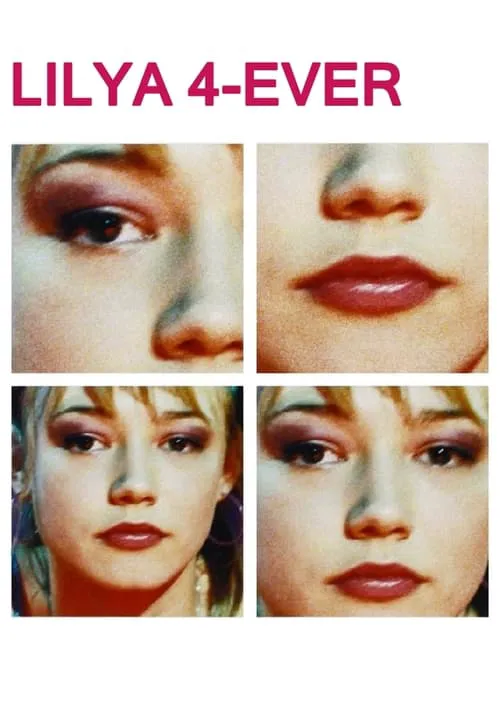Lilya 4-ever

Plot
Lilya 4-ever is a 2002 Swedish drama film that delves into the lives of marginalized teenagers, focusing on the tumultuous journey of Lilya Michailova, a young woman struggling to find her place in a harsh world. The film is based on a true story and serves as a searing indictment of the social and economic conditions that lead to the exploitation and abuse of the most vulnerable members of society. The film begins in Riga, Latvia, where we meet Lilya, a 16-year-old girl living in poverty with her mother. Despite her mother's neglect and inability to provide for her, Lilya's imagination and aspirations are fueled by her dreams of a better life. Her mother's decision to move to the United States, leaving Lilya with her aunt, proves to be a crushing blow. The aunt, emotionally unavailable and self-centered, fails to provide the love and support that Lilya desperately craves. As the days turn into weeks, Lilya becomes increasingly desperate, and her circumstances grow more dire. With no prospect of a decent education, a stable home, or a supportive family, she is pushed towards the only available option: prostitution. This harsh reality serves as a stark reminder of the devastating consequences of poverty and the systemic failure to provide adequate support systems for vulnerable youth. Lilya's entry into prostitution is met with a mixture of fear, shame, and desperation. Her experiences with clients, often cruel and degrading, serve as a graphic illustration of the brutal exploitation that many young women face in this line of work. Despite her resilience and determination, Lilya is repeatedly battered by the cruel realities of her situation, leaving her feeling broken, vulnerable, and alone. However, amidst the darkness, there is a glimmer of hope. An offer from Andrei, a charming and persuasive stranger, promises Lilya a new beginning in Sweden. The prospect of a good job, a new life, and a fresh start in a foreign land proves too enticing to resist. Lilya embarks on a perilous journey, leaving behind the only home she's ever known, her family, and the meager security of her aunt's flat. Upon arrival in Sweden, Lilya is met with a different set of challenges. The initial euphoria of her new surroundings quickly gives way to disillusionment, as she realizes that her promised job is a sham. Instead of a warm welcome, she's faced with isolation, loneliness, and the harsh realities of an unfamiliar country. The language barrier, cultural differences, and the unforgiving climate prove to be a perfect storm of difficulties that she struggles to navigate. The film's portrayal of Lilya's struggles in Sweden is both heart-wrenching and thought-provoking. From her initial bewilderment to her growing disillusionment, the audience is witness to her descent into despair. Her struggles serve as a stark reminder of the devastating consequences of social and economic policies that fail to provide adequate support systems for vulnerable youth. As the narrative unfolds, it becomes apparent that Lilya's journey is not just about her own struggles but also a reflection of the societal failures that have led her to this point. The film serves as a scathing indictment of a system that has failed to provide for its most vulnerable members, leaving them to fend for themselves in a harsh and unforgiving world. The cinematography, a masterclass in visual storytelling, captures the bleakness and beauty of Riga and Sweden, serving as a poignant backdrop to Lilya's journey. The use of muted colors, stark landscapes, and the rhythmic sounds of the city underscores the emotional resonance of the narrative. The cast, particularly Oksana Akinshina, delivers a powerful and nuanced performance as Lilya, conveying the complexity and vulnerability of her character. Ultimately, Lilya 4-ever is a cinematic testament to the resilience and fortitude of the human spirit. Despite the crushing circumstances that define her life, Lilya refuses to give up, clinging to her dignity, her sense of self-worth, and her dreams of a better life. As the film comes to a close, the audience is left with a profound sense of sorrow, a deep understanding of the complexities of the human condition, and a stark reminder of the urgent need for reform and social change.
Reviews
Recommendations




